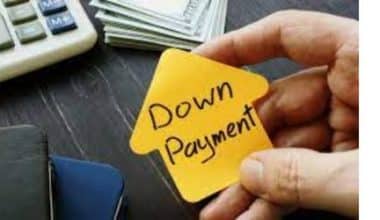Marketing is a crucial element in the real estate industry, driving sales and growth. There are various ideas for real estate marketing that can help you expand your business and boost clientele and in the following article, I’ll go over just a few of my favorites.
#1. Website
A website is an integral component of any real estate marketing plan. It should feature property showcases, user-friendly home search tools, IDX-powered listings and consistent branding to promote the listing.
Your website should include an about section that gives visitors a snapshot of who you are and how to contact you. Including this section is an effective way to foster trust with potential clients and generate leads.
Building a website is simple; all that’s required is an Internet connection and some basic computer programming knowledge. With software like Word Press or other site builders, creating an attractive website that attracts more business and increases your ROI will be no hassle at all.
The initial step in creating a website is to create user personas. These fictional characters represent the visitors to your site and serve as inspiration for design decisions.
By understanding your audience’s motivations, attitudes, behavior patterns and needs, you can build a website that resonates with them and converts more visitors. Create content that speaks directly to them which encourages them to share your blog posts or other online materials with their networks.
#2. Blogging
One of the best ways to increase leads for your real estate business is blogging. Blogging can help you foster relationships with potential clients, network with other agents and position yourself as an expert in your field.
Creating a blog for your real estate business begins with selecting topics that matter to your audience, such as local events or trends. Begin by considering topics relevant to them.
You can do this by targeting keywords your target market searches for, such as “how to increase home value” or “what is curb appeal?”
Once you have a good idea of the content that you would like to create, start searching for inspiration. Consider what’s happening in your community–such as a new property going up for sale or major changes in housing laws–to get an idea of what type of material to create.
#3. Email Marketing Campaigns
Email marketing in real estate is an effective tool to nurture leads and boost sales. It also keeps you connected with customers throughout the process, which can be a good idea for converting them into clients and earning high volumes of referrals.
No one likes getting an email that has nothing to do with them. One of the most crucial aspects of a real estate email marketing plan is sending tailored messages to your audience. You can accomplish this by segmenting your list based on their interests and preferences.
Segmenting allows you to deliver content tailored to your audiences’ needs and interests, increasing the likelihood that they’ll open and read your emails. Segmentation makes it simpler for you to nurture customers throughout the buying/renting process and turn them into buyers or renters.
Real estate email marketing tools come in a range of prices, from free to several hundred dollars per month. When selecting one, look for one that provides real-time data which will allow you to monitor how your campaign performs in terms of open rate, click-through rate and unsubscribe rates.
#4. Virtual Staging
Virtual staging is becoming one of the more popular (and most effective and affordable) ways to market a property online. With millions of design options at your fingertips, you can customize each room according to the preferences of potential buyers.
In recent years, the real estate industry has undergone dramatic transformations. Before technology, it was difficult for buyers to locate homes they were interested in purchasing. Now they can browse listings on their phones or computers and select a few favorites to view in person.
However, some real estate salespersons are wary of using virtual staging. They contend that photos that appear fake or out-of-focus may mislead potential homebuyers.
However, many agents concur that virtual staging is an effective marketing strategy. It can help sellers quickly sell their homes for a good price.
If you’re considering adding virtual staging to your real estate business, it is best to hire experienced professionals with knowledge in this area. Doing so will guarantee the desired outcomes. It may also be wise to conduct an analysis of the local market before beginning this service.
#5. Experiential Marketing
Experiential marketing is an ideal way to showcase your real estate business. It allows clients to engage with your brand directly and form positive associations.
Encouraging customers to share their experiences increases the impact of your campaign. This can create a self-sustaining marketing machine for your business, increasing both reach and sales.
Experiential marketing is becoming a more and more popular marketing strategy. It continues to outperform traditional forms of advertising by offering consumers an immersive and captivating experience.
Experiential marketing offers the ultimate customization, so you can design an event tailored to your brand and target audience. Customize invitations, swag, and even physical or virtual experiences with ease!
Experiential events are an excellent way to foster loyalty with your clients and give them something memorable to remember. They serve as a great opportunity for collecting user data and feedback. By integrating event badging technology, you can track attendee engagement and attendance at your events with ease.
#6. Local Business Partnerships
Partnering with local businesses is an effective way to raise your real estate marketing game. Consider sponsoring sporting events, festivals or school functions in your area in order to get your company name in front of potential clients and referral partners.
Consider trading your services for complementary home decor, landscaping or property management from reliable vendors. As they say: “you never get a second chance to make a first impression”, this strategy is sure to pay off.
Another effective way to stand out from competitors is by telling a captivating story. This could be about the best features of a particular house in your area or it could be about the neighborhood as a whole.
A well-crafted tale can help you win over potential clients’ hearts, and its impact will last long after the sale has been closed. The key here lies in crafting an engaging narrative that speaks directly to your target audience’s needs–no matter how large or small those needs may be.
#7. Instagram Promotions
Instagram is an effective tool for marketing your real estate business. With over 400 million users worldwide, it’s an effective platform for showcasing new listings and open houses.
Before you launch a real estate marketing campaign, it’s smart to define your objectives. This will enable you to select an effective ad format (image or video), creative (artwork), and copy for your ads.
For instance, you could run a carousel ad featuring photos of the home being sold or video highlighting your services. These ad formats are powerful and cost-effective ways to reach new prospects.
Another type of ad is retargeting, which displays your post to people within your target area. This is an effective option for increasing brand awareness and it’s simple to monitor performance with an Instagram ads management program.
Real estate agents may utilize branded hashtags to share their content. These unique codes are specific to their brand and serve as an effective way for driving people to their Instagram profile and increasing exposure.
#8. Drone Photography
Drone photography is an effective real estate marketing strategy that can be utilized to draw buyers to your listings. It provides a unique perspective of the property that’s simply not possible with standard photos.
In addition to still images, drone videos offer a 360 degree view of an area surrounding a property and showcase its best features. This helps buyers visualize themselves living in that particular spot.
For optimal photo quality, consider selecting a drone with an advanced camera and plenty of battery life, but also take into account weather conditions when making your decision. When taking drone photos, make sure you shoot on a sunny day for optimal results. Fog can also look stunning in a drone photo, so be sure to check the forecast before heading out on your shoot.
#9. Referrals
Asking for referrals can seem intimidating, but it is one of the most efficient methods to expand your business (https://www.entrepreneur.com/growing-a-business/). It is important to remember that referrals from clients with whom you already have a strong relationship are the most reliable real estate referrals.
Clients are more likely to refer you when they feel that you value them and prioritize their needs. To accomplish this, check in regularly, share relevant items they might like, and discuss personal matters just as much as you discuss real estate issues.
Social media can also be an effective tool for generating referrals by posting about your day in the office or providing key market insights with buyers and homeowners. Doing this helps build trust and position you as a knowledgeable expert within the community.
Another way to boost referrals is by hosting events for both past and current clients. This could include housewarming parties or client appreciation gatherings. These gatherings give past clients a chance to remember you as the agent who helped them find their dream home, as well as being available for any future transactions they might need assistance with.
#10. Business Cards
A professionally designed real estate business card can make an impact on potential clients and help you stand out from other agents. Create a memorable real estate business card by designing it with your company’s branding mind.
You can do this by including your company logo or word mark as the primary element on the card. The typeface used on the card should be clear and legible for easy reading. Include essential information such as contact info and social media accounts on the card.
If you’re a high-end real estate agent or an experienced team leader within a brokerage, it’s important to differentiate your brand from competitors. By including elements like your logo, company colors and website’s design into your business card design, potential clients will quickly recognize who you are.
#11. Mobile Optimization
As more and more people rely on their smartphones to search online, you must ensure that your site looks and functions correctly on these devices. Users on small screens often struggle to read long paragraphs, so create short and concise content that conveys your main point quickly. Use headers and subheadings for mobile users so you can break up the text easily.
Enhancing the speed of your website is possible through browser caching and image optimization. These strategies can significantly reduce load time.
Google has made it increasingly clear that mobile-friendliness of a website is now considered an important ranking factor, making it important to optimize for mobile devices if you want to be found online. Nonetheless, keep in mind that performance on mobile devices isn’t the only thing that matters when it comes to providing an excellent user experience.
#12. Video Walkthroughs
Video walkthroughs are an excellent way to showcase your real estate listings with clients, according to this blog. These films can be utilized to explain a property’s distinctive features or highlight its most desirable selling points.
Videos not only promote a property, but they’re an effective way to build your brand and attract new clients. You can interview past buyers or sellers you’ve worked with, renowned business people in your region who have successful ventures, as well as experts from other sectors of the industry.
You can record footage of real estate events you attend, such as conferences or meetups. These gatherings offer an excellent opportunity to connect with potential buyers and make them feel at ease.
Ideally, these videos should be no more than two minutes in length to attract more views. However, longer ones can still be beneficial if they’re entertaining and don’t take up too much of your time.
Be sure to keep your video straightforward and packed with valuable information. Avoid using too many transitions as they can distract and annoy viewers. Include your contact info at the start of both the video and description so potential buyers can quickly connect with you and book property showings.






